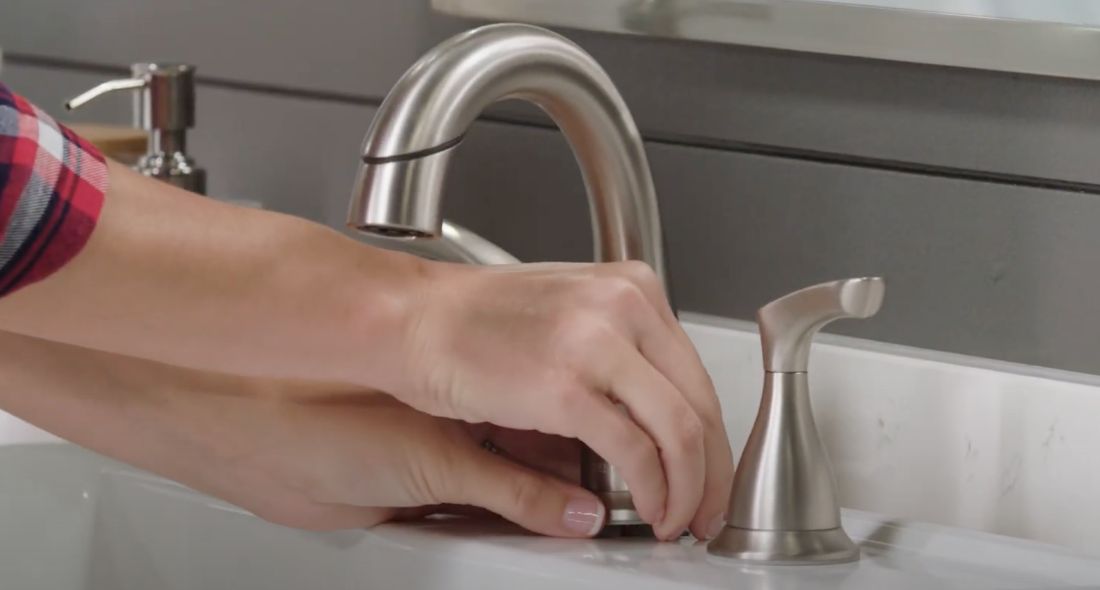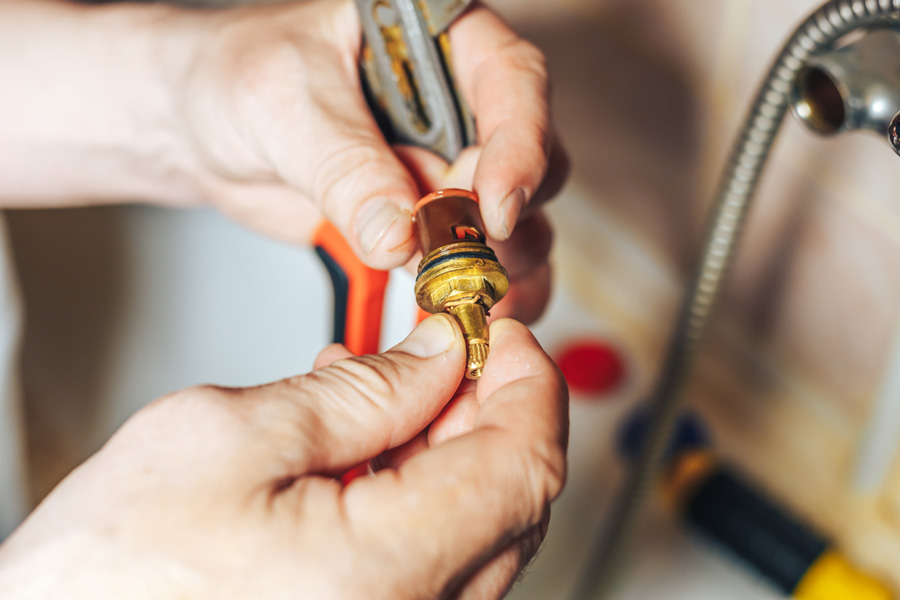Exploring the Significance of Fixing a Leaking Faucet
Exploring the Significance of Fixing a Leaking Faucet
Blog Article
Are you currently looking for know-how concerning What Causes Leaky Faucets & How To Fix Them?

Trickling faucets may appear like a small aggravation, but their effect exceeds just the inconvenience of the sound. From wasting water to incurring unneeded monetary expenses and health and wellness risks, ignoring a trickling faucet can result in numerous effects. In this short article, we'll explore why it's important to address this common house problem promptly and properly.
Wastage of Water
Ecological Impact
Trickling taps add substantially to water wastefulness. According to the Environmental Protection Agency (EPA), a solitary tap dripping at one drip per second can throw away more than 3,000 gallons of water annually. This not just pressures water resources however likewise influences communities and wildlife based on them.
Financial Prices
Increased Water Bills
Beyond the environmental effect, dripping faucets can pump up water expenses substantially. The gathered waste in time converts into greater utility expenses, which can have been stayed clear of with prompt repair work.
Possible Building Damage
In addition, long term leaking can bring about harm to components and surfaces surrounding the tap. Water build-up can trigger staining, corrosion, and also architectural problems if left unattended, causing added repair work expenses.
Health and wellness Issues
Mold And Mildew and Mold Growth
The consistent existence of moisture from a leaking faucet produces an optimal setting for mold and mold growth. These fungis not just jeopardize interior air quality however additionally position wellness risks, specifically for individuals with breathing problems or allergies.
Waterborne Diseases
Stagnant water in trickling taps can become a breeding ground for germs and various other virus, raising the threat of waterborne illness. Pollutants such as Legionella bacteria flourish in stationary water, potentially leading to severe diseases when consumed or inhaled.
Do it yourself vs. Professional Repair service
Benefits and drawbacks of DIY Fixing
While some may try to fix a leaking tap themselves, DIY repair services feature their own set of obstacles. Without correct knowledge and tools, do it yourself efforts can exacerbate the issue or cause insufficient fixings, prolonging the problem.
Benefits of Employing an Expert Plumber
Employing an expert plumber makes sure that the underlying source of the trickling faucet is addressed effectively. Plumbings possess the knowledge and equipment to diagnose and fix tap problems effectively, saving time and minimizing the threat of further damages.
Step-by-Step Guide to Repairing a Dripping Tap
Devices Required
Prior to attempting to fix a trickling faucet, gather the needed tools, consisting of an adjustable wrench, screwdrivers, replacement components (such as washers or cartridges), and plumber's tape.
Typical Tap Issues and Their Solutions
Recognize the kind of tap and the details issue triggering the drip. Typical troubles include damaged washers, rusty shutoff seats, or damaged O-rings. Refer to producer guidelines or online tutorials for step-by-step guidance on repair services.
Safety nets
Regular Maintenance Tips
To avoid trickling taps, do routine upkeep such as cleaning aerators, evaluating for leakages, and replacing worn-out parts immediately. Additionally, take into consideration setting up water-saving gadgets or updating to much more reliable fixtures.
Relevance of Prompt Fixes
Addressing leaking faucets as quickly as they're discovered protects against more water waste and potential damages, ultimately saving both water and cash in the future.
Impact on Residential Property Worth
Assumption of Well-Maintained Property
Maintaining a residential or commercial property in good condition, including resolving upkeep issues like trickling taps, enhances its perceived worth and desirability amongst prospective buyers or tenants.
Impact on Resale Value
Residences with well-maintained plumbing components, consisting of taps, command greater resale worths in the real estate market. Dealing with leaking faucets can contribute to a favorable impact during residential property assessments and negotiations.
Ecological Duty
Individual Payment to Conservation
Taking obligation for taking care of dripping faucets lines up with wider initiatives towards water conservation and environmental sustainability. Every individual's actions jointly make a considerable effect on protecting precious resources.
Lasting Living Practices
By focusing on timely repair services and embracing water-saving practices, individuals add to sustainable living practices that profit both present and future generations.
Final thought
Dealing with a dripping tap exceeds mere comfort; it's a necessary step towards saving water, decreasing economic costs, and guarding health and wellness and home. Whether through do it yourself repairs or expert aid, doing something about it to repair leaking taps is a small yet impactful method to advertise liable stewardship of resources and contribute to a much healthier, more sustainable future.
How to Fix a Leaky Faucet: Step-by-Step Repair Guide
A leaky faucet may seem like a simple annoyance, but if it's not fixed promptly, that leak could cost hundreds to potentially thousands. From water damage to mold, mildew, and high water bills, even a tiny leak can be catastrophic if left unattended. Damage like this can even affect the overall value of your home, so it's important to take the right approach for leaky faucet repair. You may need the help of a plumber in some cases, but we've got a few tips you can try on how to fix a leaky faucet before calling the pros.
Four Faucet Types
When you're learning how to fix a leaky faucet, the first step is knowing what kind of faucet you're working with! There are four common types.
Cartridge Faucets
Cartridge faucets come in one- or two-handled varieties. In one-handled cartridge faucets, hot and cold water combines in a single cartridge. In the two-handled versions, hot and cold water are controlled separately and mixed in the faucet.
Ball Faucets
Ball faucets have a single lever you push up and down to adjust the pressure and rotate to change the temperature. A slotted metal ball controls the amount of water allowed into the spout.
Compression Washer Faucets
They're the oldest type of faucet, but they're still used in many homes — especially older ones. Compression faucets have two separate handles that, when turned, raise or lower the washer that seals a water valve. This valve stops water from flowing through the faucet when it is turned off.
Disc Faucets
Disc faucets rarely need to be repaired due to their maintenance-free design. The water flow is controlled by two discs — the upper one raises and lowers against a fixed lower disc, creating a watertight seal. If your disc faucet starts leaking, you may need to replace the seals or clean residue buildup from the inlets.
Fixing a Leaky Faucet
Step 1: Turn Off the Water
Whether you're learning how to fix a leaky bathtub faucet or how to fix a leaky kitchen faucet, always turn off the water supply to your working area when you're fixing a leak. The last thing you want is a flood added to your list of things to fix.
Look for the shutoff valves below your sink or around the tub and turn them clockwise to stop the water flow. If your faucet doesn't have shutoff valves, you may need to turn off the water for the whole house. Check to make sure it's off by turning the faucet on. If nothing comes out, you're ready to start the repair.
Step 2: Take Apart the Faucet
How you disassemble your faucet depends on the type of fixture you have. You can use a flathead screwdriver to remove the caps on top of the handle or handles for cartridge and compression faucets. Inside, you should see handle screws. Unscrew these with a screwdriver to remove the handle.
Disc- and ball-style faucets will typically have an inlet screw near the handle, and removing that will reveal the interior of the faucet.
Detach the Valve Stem
For cartridge- and compression-style faucets, you'll see the inner valve stem or cartridge once you remove the faucet handles. If you have a compression faucet, unscrew the brass valve stem. If you have a cartridge faucet, pull out the cartridge. If your cartridge has been in place for a while, it may require some tools or extra force to remove it due to mineral deposits.
Examine and Replace Parts
Once you've removed the parts, check them out to confirm what needs to be replaced. You may see corroded rubber washers, O-rings, stems, or cartridges. On a ball-style faucet, check the seats and springs for damage.
If you need to repair a leaky disc faucet, check the inlet and seals on the lower disc.
Once you determine what parts must be replaced, visit your local hardware store. Bring the damaged parts with you to ensure you can purchase the correct components to replace them.
Clean Valves and Faucet Cavity
If you've removed a stem or cartridge, you may notice mineral buildup in the faucet's threads. Use white vinegar to clean the valve seat by soaking it for a few minutes, then scrub it away with a soft toothbrush and rinse with warm water. You can also clean the interior of the faucet in the same way.
Reassemble the Faucet
Once your faucet is cleaned and the required parts have been replaced, it's time to reassemble it. Put the pieces back together and slowly turn the water supply back on. Doing this slowly is crucial because too much initial water pressure can damage the new hardware you've just installed.
https://homewarranty.firstam.com/blog/how-to-fix-leaky-faucet

I ran across that write up on Should I Repair or Replace a Leaky Faucet? when doing a search on the internet. Sharing is nice. One never knows, you could be doing someone a favor. Thank you so much for going through it.
Report this page